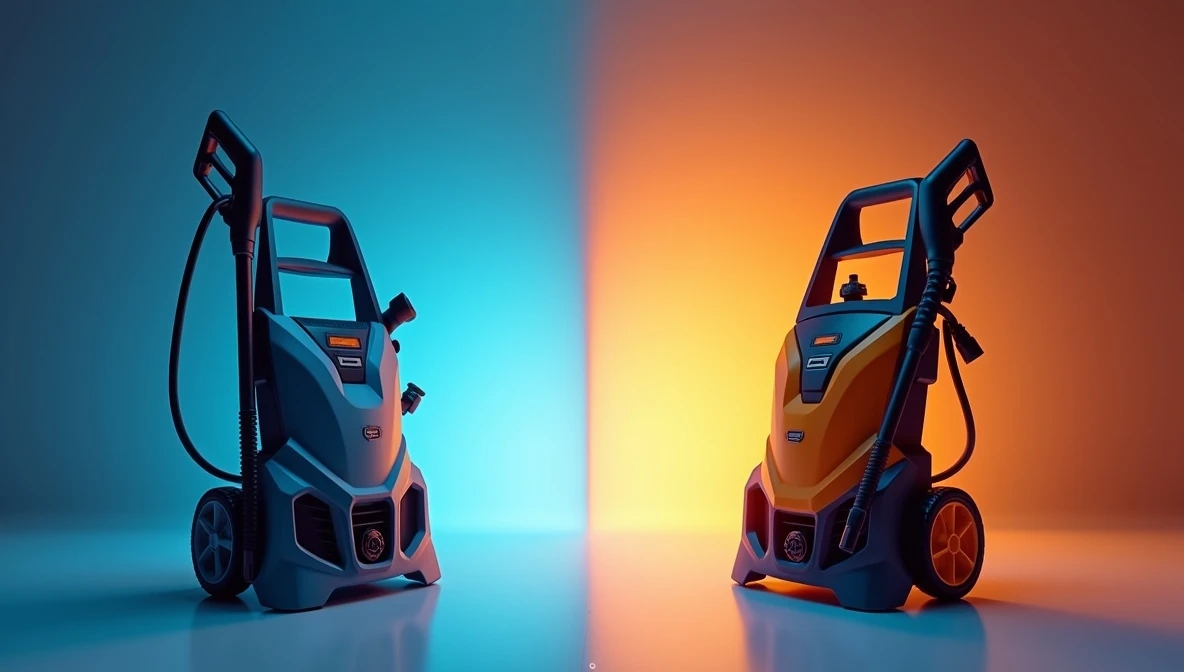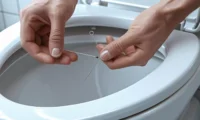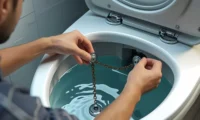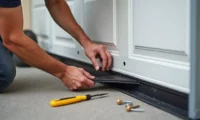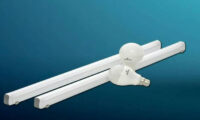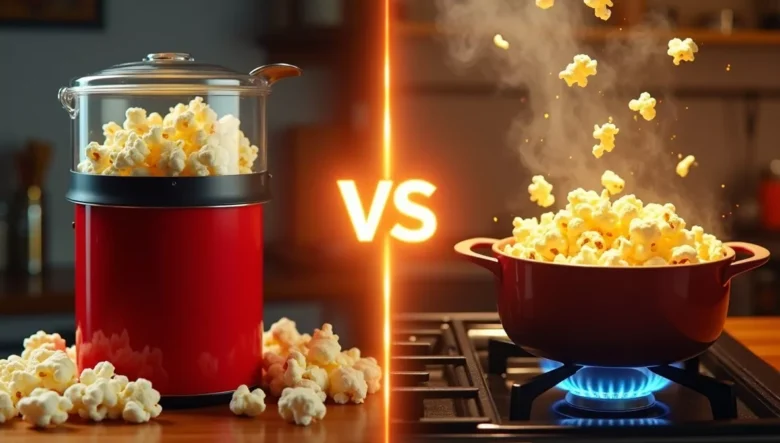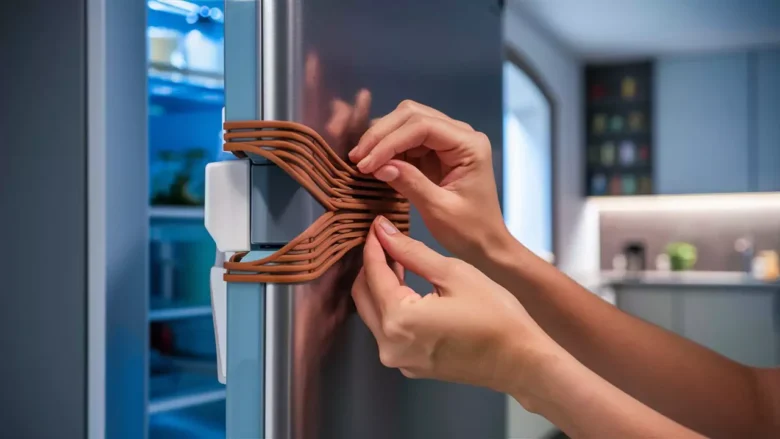Electric pressure washers are quieter, lighter, and easier to maintain—perfect for homeowners doing car washing, patios, and light-duty tasks. Gas pressure washers deliver 2-3x more power with higher PSI and GPM, making them ideal for commercial work, heavy stains, and large properties. Choose electric for convenience and home use; choose gas for maximum cleaning power and professional applications.
- Making the Right Choice for Your Cleaning Needs
- Electric Pressure Washers
- 💖 You Might Also Like
- Gas Pressure Washers
- PSI and GPM: Understanding Cleaning Power
- Noise Levels: A Critical Factor for Residential Use
- ✨ More Stories for You
- Durability and Lifespan: Which Lasts Longer?
- Maintenance Requirements: Time and Costs
- Cost of Ownership: Beyond the Price Tag
- 🌟 Don't Miss These Posts
- Best for Home Users: Typical Residential Scenarios
- Best for Commercial Users: Professional Applications
- Safety Considerations: Protecting Yourself and Your Property
- Environmental Impact: Sustainability Factors
- Comparison Electric vs Gas Pressure Washer
- How to Choose the Right Pressure Washer: Decision Framework
- Frequently Asked Questions
- How long do pressure washers typically last?
- Can I use a pressure washer on all surfaces?
- Are electric pressure washers powerful enough for concrete?
- Can pressure washers damage my property?
- What accessories do I really need?
- Do pressure washers work in cold weather?
- How much water do pressure washers use?
- Can I rent instead of buying a pressure washer?
- Is a gas pressure washer worth it for home use?
- Why This Guide Is Updated Regularly
- Conclusion: Your Next Steps
Making the Right Choice for Your Cleaning Needs
You’re standing in front of two pressure washers, wondering which one will actually clean your grimy driveway without wasting your money.
Should you grab the electric model that plugs into your garage outlet? Or invest in the gas-powered beast that promises professional-level cleaning?
This isn’t just about power ratings and price tags. It’s about matching the right tool to your actual cleaning projects—whether that’s weekly car washes, seasonal deck maintenance, removing years of grime from concrete, or starting a pressure washing side business.
I’ve tested both types extensively on driveways, siding, vehicles, and outdoor furniture. This honest, experience-based comparison will help you decide which type of pressure washer for home cleaning truly fits your needs, budget, and skill level.
Let’s cut through the marketing hype and look at what really matters when choosing between electric and gas pressure washers.
Electric Pressure Washers
Electric pressure washers run on standard household electricity and use an electric motor to pressurize water through the pump system.
These machines typically range from 1,300 to 2,300 PSI with flow rates between 1.2 to 2.0 GPM. You simply plug them into a standard outlet, connect your garden hose, and start cleaning.
The motor activates when you pull the trigger and stops when you release it, which saves energy and extends the machine’s lifespan.
Electric models weigh between 15-35 pounds, making them easy to move around your property. They produce minimal noise—usually around 70-80 decibels, comparable to a vacuum cleaner.
See the latest electric pressure washer deals →
Most homeowners find electric washers handle 80% of residential cleaning tasks effectively. They excel at washing cars, cleaning patio furniture, removing mildew from siding, and freshening up decks.
The compact design means they store easily in garages or sheds. No fuel storage, no oil changes, no winterization—just plug in and clean.
💖 You Might Also Like
Gas Pressure Washers
Gas pressure washers use gasoline engines (typically Honda, Briggs & Stratton, or Kohler) to drive high-performance pumps that deliver significantly more cleaning power.
These machines typically deliver 2,500 to 4,000+ PSI with flow rates between 2.5 to 4.0 GPM. That’s 2-3 times more cleaning power than electric models.
The difference between electric and gas pressure washer power becomes immediately obvious when tackling stubborn stains. Gas models blast through years of accumulated grime that would take electric washers hours to clean.
They’re completely cord-free, giving you unlimited mobility around your property. You can clean a massive driveway, walk around an entire building, or take the machine to remote job sites without worrying about outlet access.
Compare top gas pressure washer options →
Gas washers weigh between 50-100 pounds due to the engine, frame, and larger components. They produce 85-95 decibels of noise—similar to a lawnmower—which may concern neighbors in quiet residential areas.
Professional cleaners and homeowners with large properties consistently choose gas models for their superior performance and durability under demanding conditions.
PSI and GPM: Understanding Cleaning Power
PSI (pounds per square inch) measures the water pressure force. GPM (gallons per minute) measures water flow volume.
The real cleaning power comes from multiplying PSI × GPM to get cleaning units (CU). A 2,000 PSI electric washer at 1.5 GPM produces 3,000 CU. A 3,000 PSI gas washer at 3.0 GPM produces 9,000 CU—three times more effective.
Industry testing shows gas washers maintain higher PSI consistently throughout extended cleaning sessions, while some electric models experience pressure drops as the motor heats up.
For light tasks like washing cars or cleaning vinyl siding, 1,400-1,800 PSI works perfectly. For concrete driveways, brick walls, or commercial equipment, you need 2,500+ PSI to see real results.
What to use for car washing electric or gas washer? Electric models are actually better for vehicles because their lower PSI (1,300-1,900) won’t damage paint, trim, or seals when used with proper technique.
Gas washers can clean cars, but require careful distance management and wider spray tips to avoid paint damage. Many professionals use gas machines but dial down the pressure for delicate surfaces.
Noise Levels: A Critical Factor for Residential Use
Electric pressure washers operate at 70-80 decibels—about as loud as a dishwasher or vacuum cleaner. You can use them early morning or evening without disturbing neighbors.
Gas pressure washers roar at 85-95 decibels, comparable to a gas lawnmower. Some cities have noise ordinances that restrict gas-powered equipment during certain hours.
In testing electric models, the quiet operation made car washing a peaceful weekend activity rather than a noisy disruption. I could have conversations while working and didn’t need hearing protection.
Gas models demand hearing protection for extended use. The engine noise carries several houses away, which matters if you have close neighbors or live in suburban communities with strict noise rules.
If you clean during typical daytime hours in a rural or commercial setting, noise isn’t a major concern. For early morning, evening, or weekend cleaning in residential neighborhoods, electric washers keep the peace.
✨ More Stories for You
Durability and Lifespan: Which Lasts Longer?
Gas pressure washers with quality engines and pumps can last 10-15 years or 1,500+ hours of operation with proper maintenance. Commercial-grade models often exceed 2,000 hours.
The robust metal frames, steel pumps, and commercial engines handle daily professional use. Contractors regularly run these machines 6-8 hours daily for years.
Electric pressure washers typically last 5-8 years or 300-500 hours for consumer models. The plastic housings and lighter-duty pumps aren’t designed for constant commercial use.
However, for homeowners using a washer 2-4 hours monthly, an electric model easily provides a decade of reliable service. The motor and pump experience less stress than gas components.
Which pressure washer lasts longer depends on usage intensity. Gas models win for professional daily use. Electric models offer sufficient longevity for residential cleaning schedules.
The absence of an engine means electric washers avoid many common failure points—carburetors, spark plugs, fuel lines, oil seals—that affect gas models over time.
If you prefer low-maintenance cleaning, check electric models here
Maintenance Requirements: Time and Costs
Electric pressure washers need minimal maintenance. Check the inlet filter occasionally, ensure connections don’t leak, and store the unit away from freezing temperatures.
There’s no oil to change, no spark plugs to replace, no carburetor to clean, and no fuel stabilizer to add. Total annual maintenance time: maybe 15 minutes.
Gas pressure washers require regular engine maintenance—oil changes every 50 hours, air filter cleaning, spark plug replacement, and fuel system care. Neglect these tasks and your machine fails prematurely.
Beginners may find gas models difficult because winterization matters in cold climates. You must either run the engine dry, add fuel stabilizer, or fog the engine to prevent corrosion during storage.
I’ve seen gas washers fail because owners skipped winterization or let old fuel gum up the carburetor. These repairs cost $150-300, sometimes approaching the cost of a new electric unit.
Annual maintenance costs for gas washers run $50-100 for oil, filters, spark plugs, and fuel additives. Electric washers cost nearly nothing to maintain.
For weekend warriors who want grab-and-go convenience, electric washers eliminate the maintenance hassle entirely.
Cost of Ownership: Beyond the Price Tag
Quality electric pressure washers cost $150-400 for residential models. You’ll pay electricity costs of roughly $0.15-0.30 per hour of operation.
Gas pressure washers range from $300-800 for homeowner models, with professional units exceeding $1,500. Operating costs include gasoline ($2-4 per hour) plus maintenance supplies.
Over 5 years of typical homeowner use (50 hours annually), an electric washer costs approximately $200-450 total. A gas washer costs $500-1,100 when including fuel, oil, and maintenance.
The best type of pressure washer for home cleaning from a cost perspective is usually electric, unless you need the extra power frequently or have large commercial properties to maintain.
Gas washers deliver better value for professionals who use them daily and need maximum productivity. The higher power means jobs finish faster, allowing more customers per day.
Consider accessory costs too. Both types need hoses, nozzles, and cleaning solutions, but gas washers often require additional items like oil, funnels, fuel cans, and winterization supplies.
🌟 Don't Miss These Posts
Best for Home Users: Typical Residential Scenarios
Electric pressure washers excel at common household cleaning tasks that most homeowners tackle seasonally or monthly.
Washing cars and SUVs becomes easy with 1,500-1,800 PSI. The lower pressure cleans effectively without risking paint damage or stripping wax coatings.
Cleaning patio furniture, removing mildew from vinyl siding, freshening composite decks, and washing windows and gutters all fall within the electric washer’s comfort zone.
Can an electric pressure washer clean a driveway? Absolutely, though it takes longer than gas models for heavily stained concrete. For regular maintenance cleaning, electric washers handle driveways just fine.
Small to medium-sized properties (under 1 acre) benefit most from electric models. The 25-35 foot power cord plus 25-foot pressure hose gives you plenty of working radius.
Apartment dwellers, condo owners, and suburban homeowners appreciate the quiet operation, easy storage, and plug-and-play simplicity.
If you clean once or twice monthly for 1-2 hours, investing in a heavy gas washer makes little sense. Electric delivers the performance you need at half the cost and hassle.
Best for Commercial Users: Professional Applications
Gas pressure washers dominate professional cleaning businesses for good reason—power, durability, and productivity.
Professional window cleaners, house washers, concrete cleaners, and fleet maintenance operations run gas machines 4-8 hours daily. The industrial engines and pumps handle this punishment.
Large properties—farms, estates, commercial buildings, parking lots—demand the mobility of gas washers. No cords mean unlimited range across massive areas.
Construction cleanup, graffiti removal, heavy equipment washing, and restoration work require 3,000+ PSI that only gas models provide consistently.
The faster cleaning speed directly impacts profitability. A gas washer might clean a driveway in 20 minutes versus 45 minutes for an electric model. That efficiency adds up across multiple jobs daily.
Need maximum power? Explore gas washers here
Contractors appreciate that gas washers work anywhere—new construction sites without electricity, remote properties, or locations where outlets aren’t accessible.
Is a gas pressure washer worth it for home use? Only if you own multiple acres, clean commercially, or regularly tackle heavy-duty projects like stripping paint or cleaning heavy machinery.
Safety Considerations: Protecting Yourself and Your Property
Both electric and gas pressure washers can cause serious injuries if misused. Water pressure above 1,000 PSI can lacerate skin, inject water under skin, or cause eye damage.
Always wear safety glasses and closed-toe shoes. Never point the spray gun at yourself, others, or pets. Keep the nozzle moving to avoid etching concrete or damaging wood.
Electric washers pose electrocution risks. Use GFCI-protected outlets, keep electrical connections dry, and never operate the machine in standing water.
Gas washers produce carbon monoxide. Never operate them indoors, in garages, or in enclosed spaces. Ensure adequate ventilation even in partially open areas.
Gasoline storage and handling require care. Keep fuel in approved containers away from heat sources. Refuel outdoors when the engine is cool to prevent fires.
Start with wider spray tips (25° or 40°) before using narrower tips (15° or 0°). The concentrated zero-degree tip can slice through wood, strip paint, and cause severe injuries.
Test spray patterns on inconspicuous areas first. Different surfaces—wood, concrete, vinyl, brick—tolerate different pressure levels. What cleans concrete safely might damage wood siding.
Environmental Impact: Sustainability Factors
Electric pressure washers produce zero direct emissions. They draw power from the electrical grid, which increasingly includes renewable sources in many regions.
The energy efficiency of electric motors means less total energy consumed per cleaning session. No fuel spills, no oil disposal, and no air pollution at the point of use.
Gas pressure washers emit carbon monoxide, nitrogen oxides, and volatile organic compounds. A gas pressure washer running for one hour produces emissions comparable to driving a modern car 100 miles.
Gasoline and oil require proper disposal. Careless handling leads to soil and water contamination. Old gas left in tanks degrades and creates waste.
Both types use similar amounts of water—the GPM rating determines flow. Neither is inherently more water-efficient, though gas models’ higher GPM means faster cleaning with more water used overall.
For environmentally conscious homeowners, electric washers align better with sustainability goals. The lack of fossil fuel combustion and minimal maintenance waste make them the greener choice.
Communities with air quality concerns or strict emissions regulations may restrict gas-powered equipment use. Electric washers face no such limitations.
Comparison Electric vs Gas Pressure Washer
| Feature | Electric Pressure Washer | Gas Pressure Washer |
|---|---|---|
| PSI/GPM Power | 1,300-2,300 PSI / 1.2-2.0 GPM | 2,500-4,000+ PSI / 2.5-4.0 GPM |
| Noise Level | 70-80 dB (Quiet) | 85-95 dB (Loud) |
| Weight | 15-35 lbs (Portable) | 50-100 lbs (Heavy) |
| Maintenance | Minimal – almost none | Regular – oil, filters, fuel |
| Mobility | Limited by 25-35 ft cord | Unlimited – fully portable |
| Purchase Cost | $150-400 | $300-800+ |
| Operating Cost | $0.15-0.30/hour | $2-4/hour + maintenance |
| Lifespan | 5-8 years / 300-500 hours | 10-15 years / 1,500+ hours |
| Ease of Use | Very easy – plug and go | Moderate – engine maintenance |
| Ideal Users | Homeowners, light-duty cleaning | Professionals, heavy-duty work |
| Best Use-Cases | Cars, patios, siding, decks | Driveways, commercial, large areas |
| Environment-Friendly | 9/10 – Zero emissions | 4/10 – Produces emissions |
| Required Accessories | Hose, nozzles, detergent | Fuel can, oil, filters, stabilizer |
How to Choose the Right Pressure Washer: Decision Framework
1. Determine Your PSI Needs Based on Primary Tasks
List your three most common cleaning projects. Match them to PSI requirements: light cleaning (1,300-1,800), medium cleaning (1,800-2,500), or heavy cleaning (2,500-4,000+).
2. Consider Your Property Size and Layout
Properties under 1 acre with accessible outlets favor electric models. Larger properties, rural settings, or areas without convenient electricity access benefit from gas washers’ unlimited mobility.
3. Factor in Maintenance Commitment and Skill Level
Be honest about your willingness to perform regular engine maintenance. If you want zero-hassle operation, electric wins. If you’re comfortable maintaining small engines, gas works fine.
4. Evaluate Noise Tolerance and Restrictions
Check local noise ordinances and consider your neighbors. Close suburban living often makes quiet electric washers the socially responsible choice, while rural properties tolerate gas washer noise easily.
5. Calculate Available Storage Space
Electric washers store compactly in small sheds or garages. Gas washers need dedicated space for the machine plus fuel and maintenance supplies. Measure your storage area before buying.
6. Set a Realistic Total Budget
Include purchase price plus 5-year operating costs. Electric washers offer lower total ownership costs ($200-450) versus gas models ($500-1,100) for typical residential use patterns.
7. Assess Required Accessories and Add-Ons
Both types need quality hoses and nozzle sets. Gas washers additionally require fuel containers, oil, filters, and stabilizers. Budget $50-100 more for gas washer accessories initially.
8. Consider Frequency and Duration of Use
Occasional users (monthly, 1-2 hours) maximize value with electric washers. Frequent users (weekly or daily) benefit from gas washers’ superior durability and power, despite higher maintenance requirements.
9. Match Power to Your Physical Capabilities
Electric washers weigh 15-35 pounds—manageable for most adults. Gas washers at 50-100 pounds require reasonable strength to maneuver, especially on uneven terrain or stairs.
10. Plan for Future Needs and Project Expansion
If you might start a side business or tackle more demanding projects, invest in a capable gas washer. For purely residential needs unlikely to expand, electric provides excellent long-term value.
Frequently Asked Questions
How long do pressure washers typically last?
Electric pressure washers last 5-8 years with minimal maintenance, while gas models last 10-15 years with proper care including regular oil changes, filter replacements, and seasonal maintenance.
Can I use a pressure washer on all surfaces?
No, different surfaces require different PSI levels and techniques. Wood siding, cars, and painted surfaces need lower pressure (1,300-1,800 PSI), while concrete, brick, and metal tolerate higher pressure safely.
Are electric pressure washers powerful enough for concrete?
Yes, electric pressure washers clean concrete effectively for regular maintenance, though they work slower than gas models. For deeply stained or neglected concrete, gas washers provide superior results in less time.
Can pressure washers damage my property?
Yes, improper technique or excessive PSI can etch concrete, strip paint, splinter wood, damage seals, or break windows. Always test on inconspicuous areas first and maintain proper distance and angle.
What accessories do I really need?
Essential accessories include a quality high-pressure hose (25-50 ft), multiple nozzle tips (0°, 15°, 25°, 40°), and a nozzle extension wand for reaching high areas safely and effectively.
Do pressure washers work in cold weather?
Yes, but water supply and washer components must stay above freezing. Never operate when temperatures are below 32°F, as ice formation can damage pumps and hoses, requiring costly repairs.
How much water do pressure washers use?
Water usage depends on GPM (gallons per minute) rating. Electric models use 1.2-2.0 GPM, while gas models use 2.5-4.0 GPM. A typical cleaning session uses 30-120 gallons depending on duration.
Can I rent instead of buying a pressure washer?
Yes, rental stores charge $40-100 daily for pressure washers. Renting makes sense for one-time projects, but buying becomes cost-effective if you’ll use the machine more than 2-3 times annually.
Is a gas pressure washer worth it for home use?
Gas pressure washers are worth it only for homeowners with large properties (2+ acres), frequent heavy-duty cleaning needs, or commercial applications. Most residential users find electric models provide sufficient power at lower cost.
Why This Guide Is Updated Regularly
Pressure washer technology evolves continuously with improvements in motor efficiency, pump design, and safety features. Manufacturer specifications, model availability, and pricing change seasonally.
New electric motor designs increase power output while maintaining compact size. Brushless motors extend lifespan and reduce maintenance compared to older brushed motor designs.
Gas engine manufacturers regularly update emissions standards, resulting in cleaner, more efficient engines. Newer models incorporate better fuel systems that resist ethanol-related damage.
Consumer preferences shift as environmental awareness grows and noise regulations tighten in residential areas. This influences which models manufacturers prioritize and promote.
We monitor industry developments, user reviews, and performance testing to keep recommendations current. When significant changes occur—new technology, major recalls, or shifting best practices—we update this comparison accordingly.
Price fluctuations, seasonal sales, and new model releases affect purchasing decisions. We periodically review affiliate product recommendations to ensure readers access current, available options.
Your cleaning needs may change too. A homeowner today might start a side business tomorrow. This guide provides the framework to make informed decisions regardless of when you’re reading it.
Conclusion: Your Next Steps
Both electric and gas pressure washers excel in their intended roles. Neither is universally superior—each serves different users, applications, and priorities effectively.
Choose electric pressure washers if you:
- Clean residential surfaces monthly or seasonally
- Want zero-maintenance, plug-and-play operation
- Value quiet operation and compact storage
- Primarily wash cars, siding, decks, and patios
- Have accessible electrical outlets
- Prefer lower purchase and operating costs
Choose gas pressure washers if you:
- Need maximum cleaning power regularly
- Clean professionally or commercially
- Own large properties (2+ acres)
- Require unlimited mobility without cords
- Tackle heavy-duty projects (concrete, paint stripping)
- Can handle regular engine maintenance
For 80% of homeowners, an electric pressure washer costing $200-350 provides everything needed for years of reliable service. You’ll appreciate the simplicity every time you plug in and start cleaning.
For professionals and power users, a quality gas washer costing $500-800 represents a business tool or serious investment in property maintenance. The superior performance justifies the higher cost and maintenance.
Ready to make your choice?
Browse electric pressure washers perfect for home use →
Explore professional-grade gas pressure washers →
Start with honest assessment of your cleaning needs. Match your typical projects to the appropriate power level. Consider your maintenance willingness and budget realistically.
The best pressure washer isn’t the most powerful one—it’s the one you’ll actually use regularly because it fits your needs perfectly.
Make your selection confidently, follow basic safety practices, and enjoy the satisfaction of transforming dirty surfaces into clean, fresh-looking spaces around your property.


